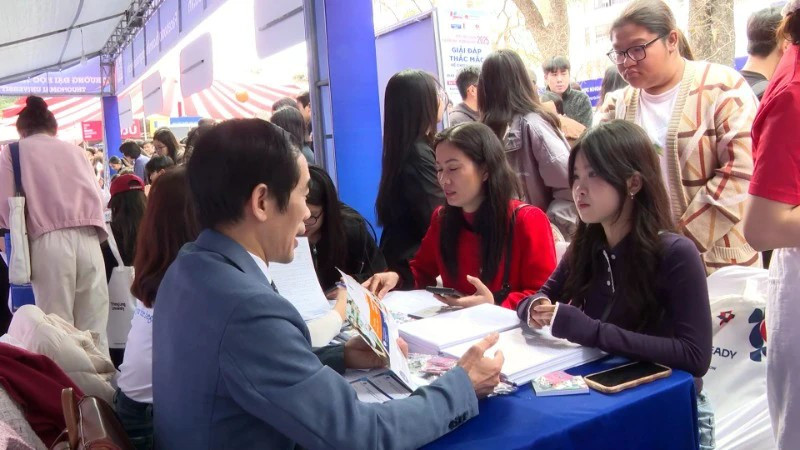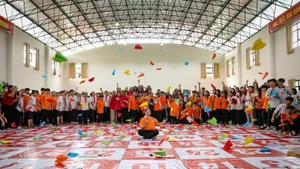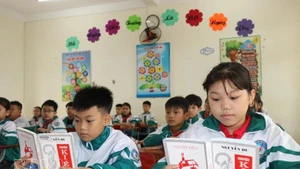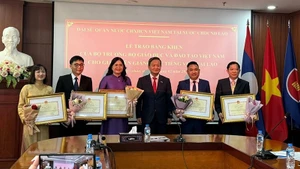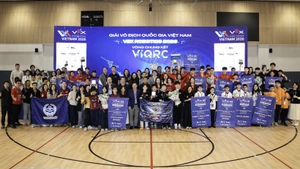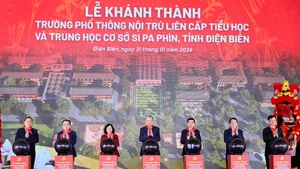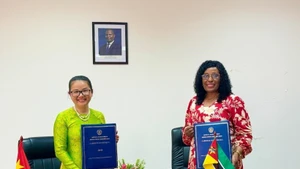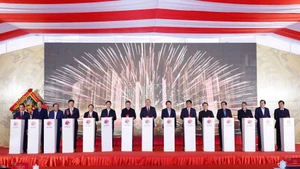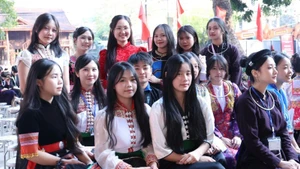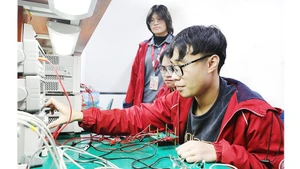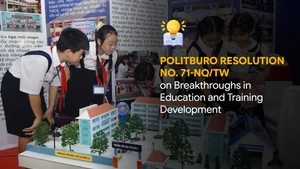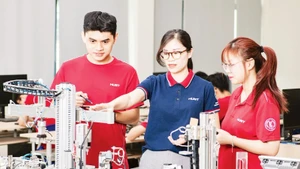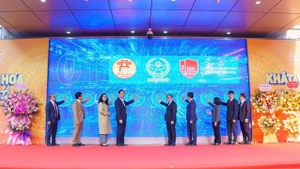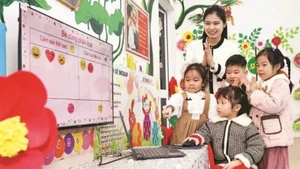The 2025 university admissions season, with the introduction of new subject combinations, presents both opportunities and challenges for students in shaping their career paths.
Adjustments in higher education
In response to changes in the labour market, universities are updating their training programmes, especially by introducing interdisciplinary courses that combine technology with economics and management.
The Academy of Policy and Development plans to launch five new programmes, including Digital Marketing and Global Business. These aim to equip students with core knowledge and adaptive skills for a technology-driven economy.
Similarly, the University of Commerce is offering seven new English-taught programmes such as Brand Management and International Certified Auditing, with AI-related content. Two international dual-degree programmes and a technology transfer programme will also be introduced.
Phenikaa University is developing interdisciplinary courses in digital economy, business, and logistics, while incorporating online modules to keep students up to date with technological trends. Professor Nguyen Van Hieu noted that self-learning will be key, as AI may soon become a standard recruitment criterion.
The Vietnamese-German University is introducing Mechatronics Engineering and Economics programmes, both following German academic standards and offering full scholarships.
In media and journalism, AI is reshaping content production. To adapt, universities such as the University of Social Sciences and Humanities and the Academy of Journalism and Communication are updating curricula with digital and interdisciplinary modules.
According to Associate Professor Dr Nguyen Thi Truong Giang, journalism graduates can now work across various domains, from online media to digital communications, increasing their competitiveness in the digital age.
Key criteria for career selection
The consolidation and streamlining of public administrative agencies under Resolution 18-NQ/TW has raised concerns among many Year 12 students regarding their career choices.
Nguyen Minh Ngoc, a student at Viet Duc High School in Ha Noi who is passionate about content creation, plans to pursue Journalism and Multimedia Communications. However, with media agencies undergoing restructuring, she expressed concerns about post-graduation job prospects.
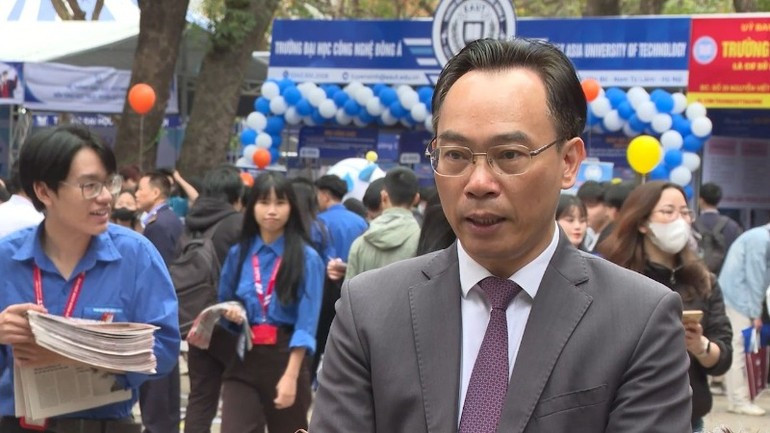
Deputy Minister of Education and Training Hoang Minh Son noted that choosing a university course should not be about following trends. Instead, students must consider their own abilities and the long-term demands of the labour market. Sustainable fields of study are typically those that provide strong foundational knowledge and allow graduates to work across multiple industries.
The philosophy of higher education is to equip students with core knowledge and lifelong learning capabilities, only through lifelong learning can individuals remain relevant and irreplaceable.
Career guidance expert Ta Van Hoai Thanh from the Empire Team Education System advised that young people should balance their personal interests with the realities of the job market. Fields that merge economics and technology, such as data science, information systems management, e-commerce, and digital marketing, are currently in high demand.
Additionally, prospective students should pay close attention to training quality and international partnerships. Preference should be given to institutions with up-to-date curricula aligned with global trends, cooperation with reputable organisations and enterprises, and opportunities for international exchanges. Lastly, consulting with current students and alumni can offer valuable insights into training quality and career prospects.
Adapt or be left behind
In an age of rapid AI advancement and digital transformation, choosing a career requires careful deliberation. Rather than simply following passion, young people should consider interdisciplinary fields aligned with technological trends. Moreover, cultivating self-learning skills and staying informed about industry developments will help them maintain a competitive edge in an increasingly demanding job market.
University admissions trends are also shifting, with expanded subject combinations increasing students’ chances of admission. Institutions are gradually transforming their teaching models, offering dual-degree and international programmes. While these open up greater opportunities, they also place higher demands on language proficiency, adaptability, and student autonomy.
The times are changing fast, and they wait for no one. Only those who are prepared to adapt and proactively acquire knowledge will be able to thrive in the age of AI.
